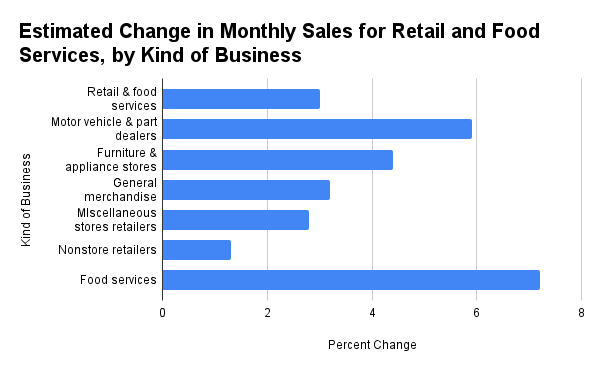Surprising results for January, increased retail sales could sway the Federal Reserve efforts to raise interest rates even higher to effectively slow down the economy.
Retail sales spiked in January, an indication of increased spending by consumers that could force the Federal Reserve to take further action to tame inflation.
Retail sales in January rose 3%, not adjusted for inflation, the U.S. Census Bureau said Wednesday. The increase followed two months of falling sales. The increases cut across categories, with car dealers, department stores, and furniture stores all showing large gains.
The rebound in retail sales is a sign of economic strength but could also feed inflation. In addition to the retail sales report, separate data recently showed that 517,000 jobs were added last month. The rising spending and employment are good news for workers and businesses, but also suggest that the Fed has not yet succeeded in cooling off the economy, which could lead the central bank to raise interest rates more aggressively.

This chart shows the increase in retail sales in January. Overall, retail sales increased in all sectors of retail.
The strong report was not a surprise given the increase in auto sales in January, said Michael Englund, chief economist for Action Economics, had no surprises about the retail sales report.
The slowdown in sales during the holiday season had led some economists to conclude that high inflation was leading consumers to pull back. But the rebound in January suggested consumers are still willing to spend, even with inflation Shannon Seery, an economist at Wells Fargo.
“It’s an indication that sales growth is being sustained because employers are continuing to hire in the sector,” Seer said.
This report, with other data, shows that America is an economy where demand is strong, the economy is creating jobs quickly, and retail sales are high. In addition, the big increase in spending could help fuel inflation, which could force the Fed to raise rates more than expected, which ultimately could cause a recession. Therefore, the economy has to cool off for rates not to increase in the future and to avoid a possible recession.

